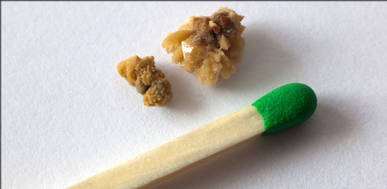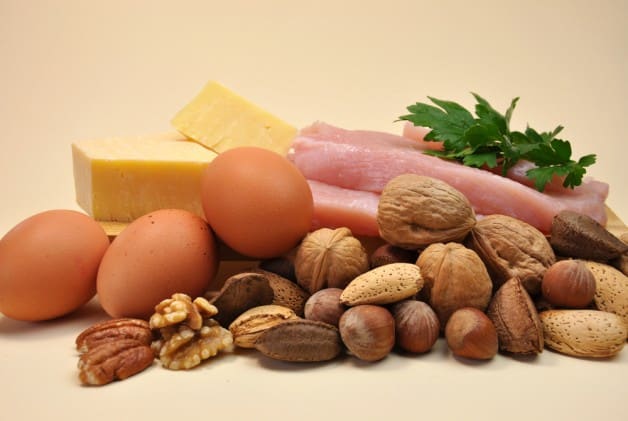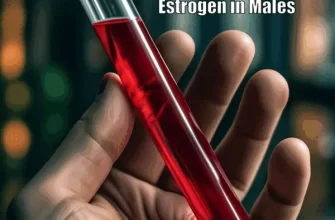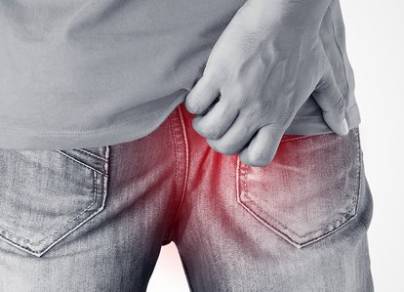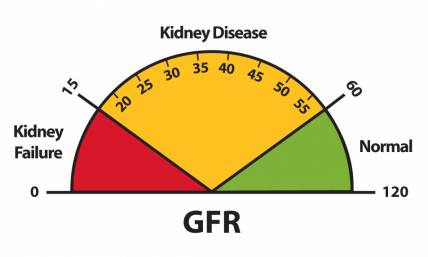Kidney stones are a frequently encountered health issue that can result in substantial agony and unease. The subsequent information offers an comprehension of the nature of these stones, their widespread occurrence, and certain factors that increase the likelihood of their formation.
Overview of kidney stones
- Definition: Kidney stones are solid formations consisting of minerals and salts that develop within the kidneys, alternatively referred to as renal calculi, nephrolithiasis, or urolithiasis.
- Prevalence: In the 2013-2014 period, approximately 10% of the population experienced kidney stones.
- Gender Disparity: The risk is higher in men at about 11%, compared to 9% in women.
Causes and risk factors
- Family and Personal History: Having a family history of kidney stones elevates the chances of encountering this ailment. Likewise, individuals who have previously suffered from a kidney stone are more susceptible to developing another.
- Dehydration: Insufficient water intake may lead to the formation of stones due to concentrated urine.
- Other Diseases: Conditions such as high blood pressure, diabetes, and obesity are linked to higher stone risk.
- Change in Prevalence Over Time: There has been an increase from 8% in the late 1970s to 8.8% in the late 2000s in the prevalence of kidney stones.
- Sources: Information has been referenced from authoritative sources including the Mayo Clinic and the National Institute of Diabetes and Digestive and Kidney Diseases.
Understanding the Male Urinary System
Structure and function of the male urinary system
- Anatomy: The male urinary system consists of the kidneys, ureters, bladder, and urethra.
- Kidneys’ Location: Located toward the back of the upper abdomen, one on each side of the spine.
- Ureters: Narrow tubes called ureters transport urine from the kidneys to the bladder.
- Bladder: The bladder serves as a storage space for urine until it is ready to be excreted.
- Urethra: A small tube allowing urine to leave the body during urination.
Role of kidneys in urine production
- Filtration: Kidneys filter waste and excess fluids from the blood to create urine.
- Regulation: They regulate the body’s chemical levels and fluid balance.
- Formation of Kidney Stones: When minerals and salts concentrate, they can crystallize to form kidney stones. If stones obstruct the ureter, they cause pain and hinder urine flow.
Common symptoms of kidney stones in men
- Sudden and Severe Pain: Men may experience intense pain in the side, back, below the ribs, or in the lower abdomen.
- Pain During Urination: A sharp, cramping pain in the urethra during urination is common.
- Other Symptoms: Can include blood in urine (red, pink, or brown urine), nausea, vomiting, and a persistent urge to urinate.
Diagnostic tests for identifying kidney stones
- Physical Examination: A healthcare professional will start with a physical exam and take a thorough medical history.
- Urinalysis: Testing a urine sample to look for signs of stone like blood and crystal particles.
- Blood Testing: Elevated levels of specific minerals in the blood can be indicative of the development of stones.
- Imaging Tests: Abdominal x-rays, ultrasound, and particularly CT scans are effective at visualizing kidney stones.
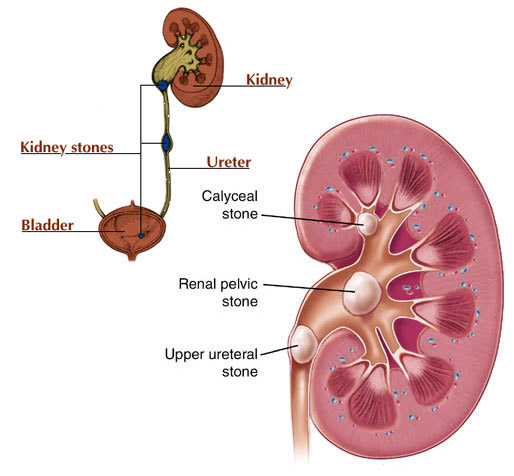
To correctly diagnose kidney stones, it is important to identify symptoms and conduct necessary tests. Specific tests can provide accurate visual representations of the kidneys, disclosing the existence, dimensions, and position of the stones. This vital information helps healthcare professionals determine the most appropriate treatment choices for their patients.
Treating Kidney Stones in Men
Medical treatments for kidney stones
- Medication: Doctors might prescribe pain relievers to manage discomfort. Medications can also be given to help the stone pass if it is small enough.
- Fluid Intake: It is recommended to drink plenty of fluids to assist in the removal of the stones through urination. Generally, water is the preferred choice.
- Medical Therapy: Some drugs can assist in regulating the levels of minerals and salts in the urine, as well as facilitating the passage of kidney stones.
Surgical interventions for larger stones
- Extracorporeal Shock Wave Lithotripsy (ESWL): This procedure, which is not invasive, employs shock waves to fragment stones into small particles that are subsequently eliminated through the urine.
- Ureteroscopy: A small instrument is placed into the urethra to extract stones from the ureter or kidney. Occasionally, lasers are utilized to fragment the stone.
- Percutaneous Nephrolithotomy (PCNL): Most suitable for large kidney stones, a surgeon makes a small incision in the back to remove the kidney stones directly.
If men are found to have big kidney stones that result in intense pain or kidney issues, a urologist or nephrologist might need to be consulted to find the best treatment option. Medical approaches may involve taking medication and increasing fluid consumption, but surgery might be needed for bigger stones. A prevalent procedure for eliminating large stones is called PCNL, which involves staying in the hospital and undergoing general anesthesia.
Preventing Kidney Stones
Lifestyle changes to reduce the risk of kidney stones
- Stay Hydrated: Drinking enough fluids, especially water, is crucial. It dilutes the substances in urine that lead to stones.
- Exercise Regularly: Engaging in physical activity can prevent the formation of stones by controlling body weight and ensuring the proper functioning of the urinary system.
- Avoid Sedentary Lifestyle: There is a higher chance of developing stones when there is a decrease in physical activity.
Dietary modifications for stone prevention
- Limits on Salt and Animal Protein: Reducing salt intake and moderating consumption of meat may decrease the risk of kidney stone development.
- Calcium-Rich Foods: Having enough calcium in your diet is crucial in order to avoid the development of calcium oxalate stones, despite the incorrect belief that an excess of calcium leads to stone formation.
- Oxalate Management: Foods with high oxalate levels should be consumed in moderation if prone to forming stones.
- Potassium and Citrate-Rich Foods: Eating a diet that contains plenty of potassium and citrates can be beneficial in preventing specific types of stones. This is because they can lower the acidity of urine and reduce the formation of substances that lead to stone formation.
After diagnosis, individuals often work with their healthcare provider to tailor preventative strategies that align with their specific health needs. These usually include maintaining a balanced diet, managing weight through regular exercise, and staying well-hydrated. Lifestyle changes combined with dietary modifications play a significant role in preventing kidney stones.
Frequently Asked Questions (FAQ) about Kidney Stones in Men
Q: What do kidney stones feel like in a man? Are kidney stones painful for men?
A: Men may experience significant pain from kidney stones. Typical signs may include intense cramping discomfort in the back and side, which may then travel to the lower abdomen or groin.
Q: How long do kidney stones last in men?
A: The length of time it takes for kidney stones to pass can differ depending on the size and position of the stone. Small stones may pass naturally in a matter of days or weeks, but larger stones may necessitate medical intervention.
Q: Will I know when I pee out a kidney stone?
A: Typically, the process of expelling a kidney stone can be quite painful. You might experience intense discomfort and agony while urinating, alongside the possibility of observing the presence of blood in your urine.
Q: Can you feel a kidney stone moving?
A: Yes, some people may feel a kidney stone moving through their urinary tract. This can cause severe pain and discomfort.
Q: Why do kidney stones hurt more at night?
A: The pain caused by kidney stones may be more noticeable at night because of the body’s position and lack of distractions. Additionally, urine production decreases during sleep, which may concentrate the minerals that form the stones.
Q: Can kidney stones block sperm?
A: It is possible for a large kidney stone to block the urethra, which can interfere with the flow of semen. However, in most cases, kidney stones do not directly affect sperm production.
Q: How can a man force a kidney stone to move?
A: Moving a kidney stone forcefully is not advisable as it can result in additional harm or complications. Alternatively, treatment options may involve taking pain killers, medications aiding in the passage of the stone, or even surgery if deemed necessary. It is important to consult a healthcare professional to determine the most suitable course of treatment.

